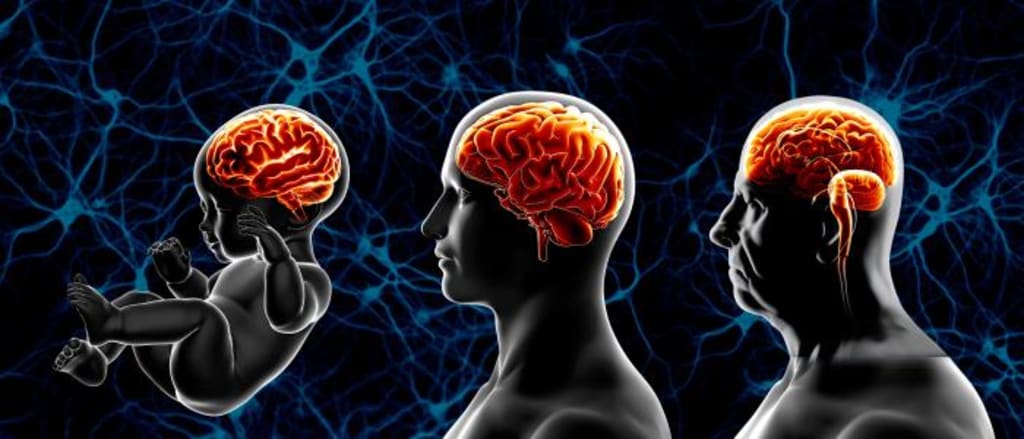Unraveling the Mysteries of Brain Ageing
Understanding the Cognitive Journey

According to specialists, certain lifestyle activities can negatively impact brain health. However, adopting a proper diet can help mitigate these damages and prevent various conditions associated with the brain. Here are several essential nutrients crucial for brain health that should be incorporated into a daily diet:
Incorporating these nutrients into a balanced diet can help support brain health, protect against cognitive decline, and promote overall well-being. Additionally, maintaining a healthy lifestyle with regular exercise, adequate sleep, and stress management is essential for optimizing brain function.
The mind, often referred to as the brain, is undoubtedly one of the most vital organs in the human body. Its intricate network of neurons and synapses allows it to control virtually every aspect of our being, from the functioning of major organs to the intricate processes of memory, emotions, and countless other bodily functions. Given its crucial role in sustaining life and facilitating our day-to-day activities, it becomes paramount to prioritize the health and well-being of this remarkable organ.
One of the key ways to support and maintain optimal brain health is through a balanced and nutritious diet. Just as the body requires various nutrients to function properly, so too does the brain rely on a steady supply of essential vitamins, minerals, and other nutrients to operate at its best. Incorporating a diverse range of foods rich in these nutrients can provide the brain with the fuel it needs to thrive.
Maintaining a balanced and nutritious diet is indeed a cornerstone of a healthy body, and it holds particular significance for brain health. While certain lifestyle habits can pose risks to brain health, such as poor dietary choices, regular exercise, and inadequate sleep, a well-rounded diet can help counteract these risks and prevent various conditions associated with cognitive decline and neurological disorders. Here are several key nutrients essential for brain health that should be incorporated into a daily diet:
Omega-3 fatty acids: Found abundantly in fatty fish such as salmon, mackerel, and sardines, as well as in plant sources like flaxseeds, chia seeds, and walnuts, omega-3 fatty acids are crucial for brain function. They contribute to the structure of brain cell membranes, support synaptic plasticity, and aid in neurotransmitter signaling, all of which are vital for cognitive function and mood regulation.
Antioxidants: Antioxidants play a critical role in protecting the brain from oxidative stress and inflammation, which are implicated in the development of neurodegenerative diseases like Alzheimer's and Parkinson's. Foods rich in antioxidants include brightly colored fruits and vegetables such as berries, leafy greens, citrus fruits, and bell peppers.
Vitamin E: As a powerful antioxidant, vitamin E helps protect cell membranes from damage caused by free radicals. It also supports healthy blood flow to the brain and may reduce the risk of cognitive decline. Good dietary sources of vitamin E include nuts (such as almonds and sunflower seeds), seeds, spinach, and avocado.
Vitamin: Vitamin B, including B6, B9 (folate), and B12, are essential for brain health as they play key roles in neurotransmitter synthesis and methylation processes. Low levels of these vitamins have been linked to cognitive impairment and neurological disorders. Food sources rich in B vitamins include whole grains, leafy greens, legumes, eggs, dairy products, and lean meats
Vitamin D: Emerging research suggests that vitamin D may play a role in brain health by regulating neurotransmitter synthesis, protecting against neuroinflammation, and promoting neuroplasticity. While sunlight exposure is the primary source of vitamin D, dietary sources include fatty fish, fortified dairy products, and egg yolks.
Curcumin: A functioning compound found in turmeric has a few medical advantages including helping mind wellbeing. The mitigating properties assist with supporting the memory and helps the development of new synapses. It has likewise been found that curcumin support cheerful chemicals in the mind, both dopamine and serotonin, that further develops temperament. One audit featured that the brilliant zest might further develop side effects of gloom and uneasiness.
Magnesium: This supplement is enormously connected with advancing mind working. According to the investigations, researchers discovered that magnesium directs synapses and upgrade mental execution. Nuts, seeds, entire grains and verdant green vegetables are wealthy in magnesium.
Vitamin C: Admission of elevated degrees of Vitamin C has been related with progress in center, memory, consideration and choice speed, according to a review distributed in Public Library of Medication. Furthermore, L-ascorbic acid backings mind wellbeing with maturing and may safeguard against conditions like significant burdensome problem, nervousness, schizophrenia, and Alzheimer's sickness.





Comments
There are no comments for this story
Be the first to respond and start the conversation.